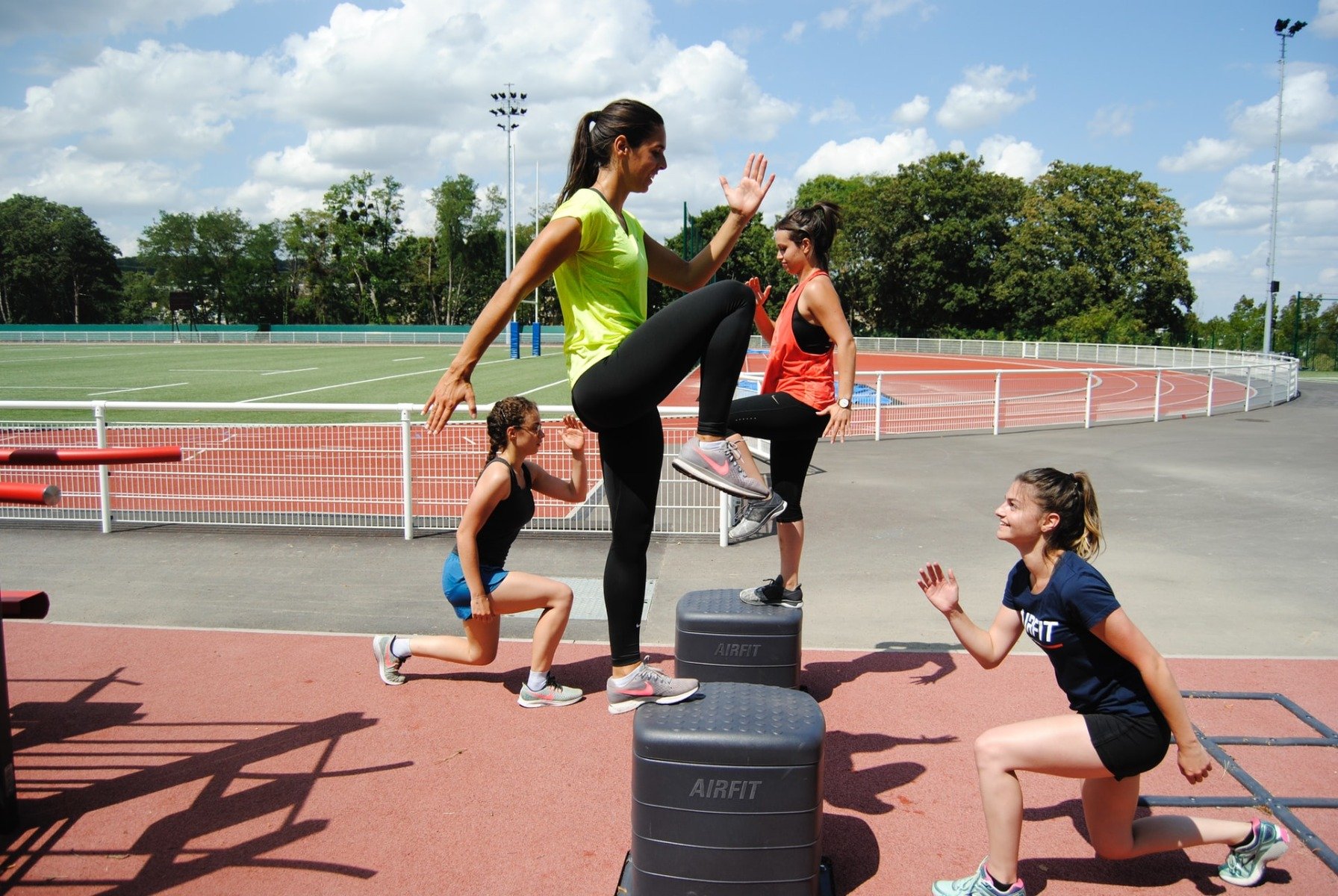
Exercise and the Brain
Many people agree exercising can feel like a chore sometimes. It can be challenging to muster up the motivation to get moving, even though we usually feel great afterward. Countless scientific studies prove that the struggle is totally worth it, considering the positive impact on our bodies. Not only does regular exercise improve physical fitness, but it also has a massive impact on brain health. Keep reading to see some of the awesome things that exercise can do for your brain.

What Happens in the Brain During Exercise?
When you start exercising, your heart rate naturally rises, which prompts an increase in blood flow to your brain. As a result of the higher blood flow, the brain receives exposure to more nutrients, oxygen, and beneficial proteins (neurons). The extra neurons help to maintain healthy brain cells and grow new neurons.
Our brain needs neurons to transmit information to and from your brain and other cells of the nervous system. When neurons die, your cognitive and motor skills decline severely. This is why it’s crucial for our bodies to maintain and grow healthy neurons.
Once your workout is done, your body is in a relaxed state where your blood vessels dilate, your breathing slows down, and your heart rate goes back to normal.
[Related: Types of Exercise and Why You Should Do More Than One]
How Exercise Can Improve Brain Health
Regularly participating in physical activities that elevate your heart rate for prolonged periods can do wonders for your brain. Here are examples of how exercise improves brain function:
Decreased Stress
Exercise lowers the number of stress hormones such as adrenaline and cortisol in the body. This can make you feel more relaxed and less irritable. And when you do feel upset or anxious, consistent exercise can help to control your emotions. In general, people who work out regularly are happier and experience less stress long-term than those who do not.
Short-Term Euphoria
Exercising triggers a flood of neurotransmitters that can put you in a temporary state of euphoria. This effect involves the release of endorphins and endocannabinoids that produce temporary euphoria and reduced pain sensitivity. During this time, you may feel overjoyed, content, and in a more positive mental state overall. When people describe feeling a “runner’s high,” this is likely what they're talking about (Hopkins Medicine).
Better Mental Health
Exercise helps to release chemicals called endorphins and it also elevates neurotransmitters like serotonin and dopamine, which in turn improve your mood, decrease pain and support better sleep. Endorphins and the lower number of stress hormones present in the body can also help with mental health issues. Research shows that exercise can help people cope with depression, anxiety, insomnia, and more. It can also improve emotional processing.

Looking for extra support? Check out our mood support supplements!
Helps to Combat Neurological Conditions
Exercise leads to higher production of neurotrophins, which leads to producing more neurons and stronger synaptic connections between areas of the brain. Exercise boosts the levels of BDNF (a specific neurotrophic growth factor) by 2-3 times in the blood and the brain over time, supporting memory and learning. Another neurotrophin, IGF-1, is often elevated by resistance training and supports cell repair and clear plaques in Alzheimer’s brains. Scientists think this increase results in slowing the progression of diseases such as Alzheimer’s.
Improves Blood Circulation
Exercising ramps up the process of blood circulation, which transports more oxygen and nutrients to the brain. When you increase your blood circulation, you can help to prevent conditions like kidney disease, varicose veins, and strokes. Blood flow also helps the hippocampus do its job - which is partly to store and remember information, and it also lowers the risk of stroke and dementia.
Increased Energy, Focus, and Attention
Physical exertion triggers the three primary neurotransmitters - norepinephrine, serotonin, and dopamine. These neurotransmitters can improve motivation, focus, mood, memory, and make you feel less tired. Although it won’t help if you’re at the level of sleep deprivation, it can help when you’re just feeling a bit sluggish.
Improved Memory
Exercise can enlarge and strengthen the hippocampus as well as the prefrontal cortex over time. Although scientists don’t know exactly how exercise changes memory over time, they agree that it can improve learning and recall abilities. This leads to improved cognitive function and could help with degenerative conditions that cause memory loss. Studies show that children and young adults who routinely exercise just a few times per week have better test scores and memory retention than those who do it. They also retain more of what they read(Harvard Health).

[Related: How To Stay Focused for Peak Productivity]
What Exercises Are Best For Brain Health?
If the brain-boosting benefits of exercise are enticing, then we've got you covered with some of the best exercises according to their benefits on your brain health.
- To fight brain fog and improve focus: Practice yoga, tai chi, HIIT**, strength and resistance exercises, or do some aerobics(Harvard Health).
- To improve brain processing speed and maintain good recall: Aerobics, walking, HIIT**, strength and resistance exercises, and bike riding are great for this(UT Southwestern).
- If you want improved blood circulation: Cardio exercises like HIIT**, strenght and resistance exercises, or activities that raise your heart rate such as running, biking, walking, etc. all help improve blood circulation(Hopkins Medicine).
- Anxiety and high-stress levels: Although all exercise can help with stress levels and lead to a more relaxed state, yoga is particularly good for this since it combines movement, mindfulness, and coordination which can also enhance memory and attention.
- Depression: Aerobics and resistance training are especially effective in improving mood for those with depression(Harvard Health).
**HIIT (High-Intensity Interval Training) has shown to be efficient in boosting neurotrophins like BDNF and enhancing cognitive flexibility and executive function, often with shorter workouts that are higher in intensity.
Can Too Much Exercise Be Bad For You?
As with most good things, you can hit a point of diminishing returns. Research shows that when you significantly increase the volume of endurance exercises you participate in weekly, it can negatively impact your decision-making skills (Science Direct). Not to mention your risk of injury goes up when you overdo your workouts. (Cleveland Clinic on Repetitive Strain Injuries)
A systematic review found that endurance athletes experiencing training overload exhibited slower reaction times (up to 20%), impaired performance and decision making tasks, and increased impulsivity; suggesting that excessive training without proper recovery can degrade cognitive performance. However, recovery is key, meaning that studies also suggested that cognitive function of athletes rebounded after 1-2 weeks of recovery time.
You’ll only see brain fatigue and other such consequences in extreme cases, however. As long as you are active enough and allow yourself enough time for recovery, you can reap positive rewards such as muscle, bone, and connective tissue growth.
How Much Exercise Is Necessary For Optimum Brain Health?
When it comes to figuring out how much to exercise, unfortunately, there is no magic number. Everyone is different, and our bodies have different needs. Experts estimate that everyone should exercise for about an hour per day to strengthen the brain.
If this sounds daunting, keep in mind that you don’t need to hit the gym for an hour every day. The one-hour target is not referring to 60 minutes of high-intensity cardio exercises each day. Exercise in this case simply means staying active and moving. Walking, dancing, swimming, or even deep cleaning the house can count towards that goal!
Furthermore, studies also suggest that 7,000 steps per day significantly lowers dementia, diabetes, and mortality risk, which is comparable to 10,000 steps.
[Related: The Benefits of Low-Impact Exercise For Your Joints and More]

Bottom Line
Exercise is one of the best things you can do for your mind, body, and soul. If you’re out of practice, remember to start small and don’t overdo it. It’s better to gradually work up to your goal than to injure yourself trying. Figure out what would make exercise more enjoyable, and accommodate those needs. Walking with a friend, listening to music or a podcast, or doing it in smaller increments throughout the day are great options to get started.
This article is provided for informational purposes only and is not intended to be used as medical advice. If you have immediate concerns about your health, please seek the help of your physician.
Looking for more ways to nourish your mind and body? Click here to check out our online store!





Validate your login
Sign In
Create New Account